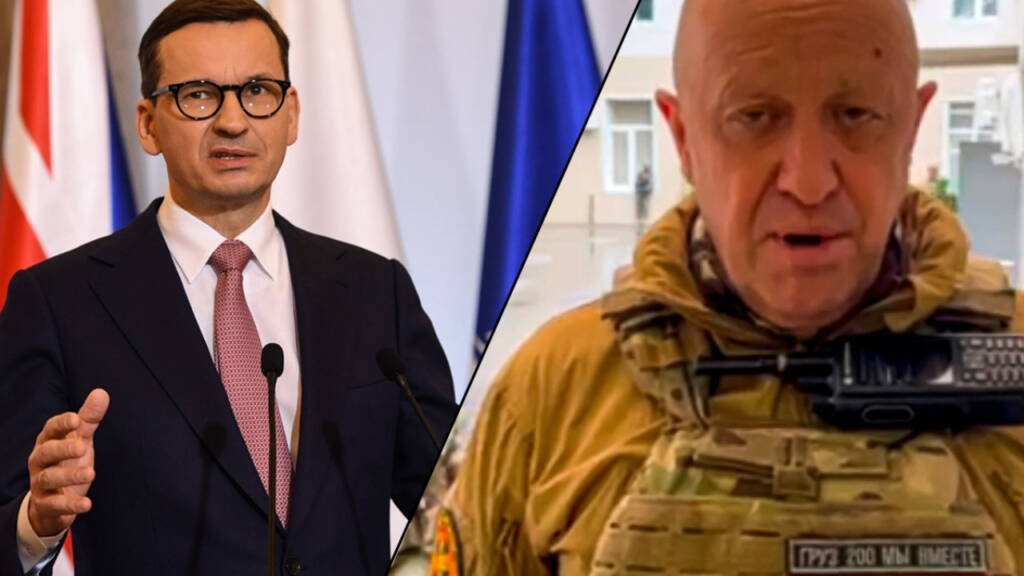The Wagner Group’s troop movements toward Belarus have raised alarms in neighbouring Poland. With Belarus housing Russia’s nuclear arsenal and military equipment near its borders, Poland is on high alert!
Wagner’s Presence in Belarus
The Wagner Group’s relocation to Belarus is posing a significant concern for Poland. The proximity of Russia’s nuclear arsenal and military equipment near its border heightens the threat perception, leaving Poland wary of potential security risks.
Recent reports revealing Wagner mercenaries conducting training for Belarusian special forces at a military range near Poland’s border escalated tensions. The involvement of Wagner chief Yevgeny Prigozhin raised eyebrows, leaving Poland on edge.
Wagner chief Yevgeny Prigozhin was shown in a video on Wednesday welcoming his fighters to Belarus, telling them they would take no further part in the Ukraine war for now but ordering them to gather their strength for Africa while they trained the Belarusian army.
“The armed forces of Belarus continue joint training with the fighters of the Wagner PMC (Private Military Company),” the Belarusian defence ministry said.
“During the week, special operations forces units together with representatives of the Company will work out combat training tasks at the Brest military range.” The range is just 3 miles (5 km) east of the Polish border.
Read More: Rebel Wagner Group is Moving to Belarus and it is Leaving Ukrainian Forces Sweltered
Poland Reinforcing Eastern Borders
The presence of Wagner Group mercenaries in Belarus prompted the Polish Defence Ministry to redeploy some military troops to reinforce the country’s eastern border, Defence Minister Mariusz Błaszczak announced. As the situation intensifies, both nations are bracing for any potential escalation.
Even Moscow has raised concerns over the situation. “Poland’s hostility toward Belarus and the Russian Federation certainly requires extra attention,” Kremlin Spokesman Dmitry Peskov told reporters, as quoted by TASS news agency. This Polish move “raises concern” of Moscow, he added.
Meanwhile, Peskov confirmed that Moscow and Minsk were working on a security concept for their Union States, as Russian President Vladimir Putin announced in April. According to Peskov, the previous parameters of the security concept are no longer relevant because of the change in the external situation and new threats emerging.
The rising tensions at the countries’ borders, coupled with sanctions and information warfare, have created an ominous atmosphere. The threat of a war spillover between Wagner and Poland looms large, causing anxiety among international observers.
Read More: Prighozin wants to become President of Russia
War Spillover
As the Wagner Group’s activities in Belarus unfold and Poland reinforces its eastern border, the risk of a conflict spillover becomes more tangible. The complex geopolitical dynamics in the region demand diplomatic efforts to prevent further escalation.
If the Wagner Group were to launch an attack on Poland, it could potentially ignite an all-out war between Russia and NATO. Given the close ties and support between Russia and the Wagner Group, any aggression against a NATO member like Poland would be seen as a direct provocation to the alliance. In such a scenario, NATO would be compelled to invoke its collective defense clause, requiring member states to come to Poland’s aid.
This could rapidly escalate into a full-scale armed conflict between Russia and NATO, with grave implications for regional and global security.
Watch More:
